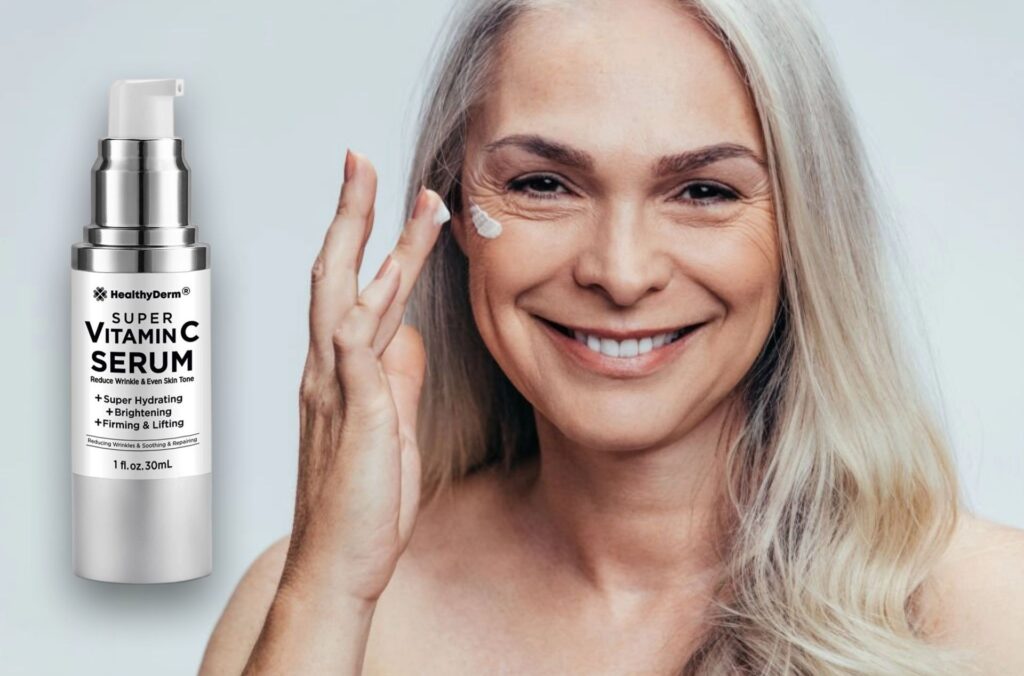5 Things You Didn’t Know About Vitamin C

Brightening. Protective. Nourishing.
Vitamin C is a powerhouse ingredient celebrated for its transformative effects on skin health. While it’s no secret that it brightens skin and fights oxidative stress, there’s more to this nutrient than meets the eye. Below, we uncover five fascinating facts about Vitamin C that can elevate your skincare routine and beyond.
1. Your Skin Needs Vitamin C — Topically and Dietarily
Vitamin C is essential for overall health, supporting your immune system and aiding skin repair. However, when consumed through your diet, it’s distributed across multiple organs, leaving only a fraction available for your skin. Topical application ensures that your skin receives a direct, potent dose where it’s needed most, boosting effectiveness for a radiant complexion.
2. It’s the Brightening Superhero Your Skin Craves
Dull skin, uneven tone, and age spots are no match for Vitamin C. This powerful antioxidant helps fade discoloration by targeting melanin production and softening the appearance of dark spots. The result? A luminous, even-toned complexion that looks fresh and healthy. Whether battling sun spots or environmental damage, Vitamin C can reveal a natural glow with consistent use.

3. It Boosts Collagen and Fights Aging
Vitamin C supports your skin’s natural collagen production, a critical factor in maintaining elasticity and firmness. As we age, collagen production declines, leading to sagging skin and wrinkles. Vitamin C reinforces this vital protein, helping to firm and smooth aging skin.
4. A Powerful Shield Against Oxidative Stress
Environmental aggressors like pollution, UV rays, and free radicals can overwhelm your skin’s defenses, accelerating visible aging. Vitamin C acts as a shield, neutralizing these harmful effects. By incorporating it into your routine, you’re arming your skin against daily stressors while reducing signs of premature aging.

5. Not All Vitamin C Is Created Equal
Vitamin C comes in various forms, each offering unique benefits:
- L-Ascorbic Acid: The purest and most potent form, ideal for maximum efficacy.
- 3-O-Ethyl Ascorbic Acid: A gentler, more stable alternative, perfect for sensitive skin.
Always check your product label to ensure the formulation matches your skin’s needs.

Pro Tips for Using Vitamin C Effectively
- Layer Properly: Apply Vitamin C serum after cleansing and toning, but before moisturizer and sunscreen.
- Pair with SPF: Vitamin C enhances sunscreen’s protection, making it a dynamic duo for daytime use.
- Choose the Right Concentration: For mature skin, opt for products with 10–20% Vitamin C for visible results without irritation.

Hacks for Maximum Results
- Hydration Boost: Follow with a sodium hyaluronate-based moisturizer to deeply hydrate and lock in moisture. Better yet, check if your vitamin C serum already includes this powerhouse ingredient for enhanced skin benefits.
- Nighttime Option: If your skin is sensitive, use Vitamin C at night to avoid daytime irritation.
- Store Correctly: Keep the serum in a cool, dark place to prevent oxidation. Use opaque, air-tight packaging.
- Gentle Exfoliation: Exfoliate weekly to remove dead skin cells and enhance absorption.
Avoid These Mistakes
- Don’t Mix with Retinol: Use them at separate times to avoid irritation (Vitamin C in the morning, Retinol at night).
- Beware of Oxidation: Discard serum if it turns dark orange or brown—it’s less effective and may irritate.
- Avoid Overuse: Start with once-daily application to minimize sensitivity.
Unique and Surprising Benefits
- Reduces Dark Circles: Strengthens thin under-eye skin and brightens darkness.
- Minimizes Pores: Over time, it refines pores by promoting collagen production.
- Accelerates Scar Healing: Speeds up skin regeneration, helping scars fade faster.
- Hydrates Lips: Dab on lips for hydration and to reduce fine lines around the mouth.
- Tackles Redness: Its anti-inflammatory properties calm redness, including post-acne marks or rosacea.

Fun Facts About Vitamin C
- Historical Origins: Sailors used Vitamin C-rich foods like citrus to prevent scurvy. While they didn’t know it boosted collagen, its healing powers were evident.
- Beyond Oranges: Foods like kiwis and bell peppers actually contain more Vitamin C than oranges!
- Skin Priority: Consumed Vitamin C first nourishes internal organs, leaving topical application essential for skin-specific benefits.
The Bottom Line
Vitamin C is a multi-functional ingredient that brightens, protects, and rejuvenates your skin. Whether you’re new to skincare or looking to upgrade your routine, incorporating Vitamin C can transform your complexion and keep your skin healthy.
Remember: For best results, always pair Vitamin C with sunscreen and follow proper storage and application guidelines.
References
• G. Pullar, et al., Vitamin C and Collagen Synthesis, Nutrients.
• L. Alexander, et al., Topical Antioxidants in Dermatology, J Clin Aesthet Dermatol.
• American Academy of Dermatology: Vitamin C and Skin Health.

